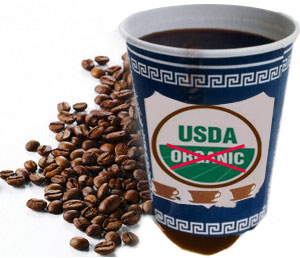(Editor’s note: I was recently asked by The Food Ethic’s Council in London to contribute a short piece on ” a future ethical issue” as it might relate to food. Below is my contribution. As always, I’d welcome your feedback.)
Rachel strolled down to her local grocery store and waved her smartphone across the package of her favorite Costa Rican all-organic, free trade coffee. The radio frequency identification (RFID) chip on the package contained reams of data about how and where the coffee was produced, and verified it was produced with no harmful chemicals or pesticides.
As Rachel more closely examined the information she was disheartened to learn how much water the organic coffee used. She was unhappy because she understood water was an increasingly precious commodity worldwide and she didn’t like being “part of the problem.” Rachel was further distressed when she reviewed the organic coffee’s carbon footprint. It required a significant amount of energy to transport the product from Costa Rica to London.
For comparison purposes, Rachel pulled up the data on the brand name coffee, which she knew utilized genetically modified coffee beans. She was surprised to find the beans had been modified in such a manner that they only required a trace amount of herbicides and pesticides. She was more startled to learn that genetic modification allowed the beans to be grown in arid conditions with little water. In fact, the water profile of the commercial coffee was significantly lower than her organic coffee and, because it grown and produced in western Turkey, it’s carbon footprint was substantially “greener” than the all-organic coffee.
A committed environmentalist, Rachel stood before the two brands and debated which coffee was truly best for the environment. The ethical choice wasn’t so clear.
Jack Uldrich is a global futurist and best-selling author. He can be reached at jack@unlearning101.com

